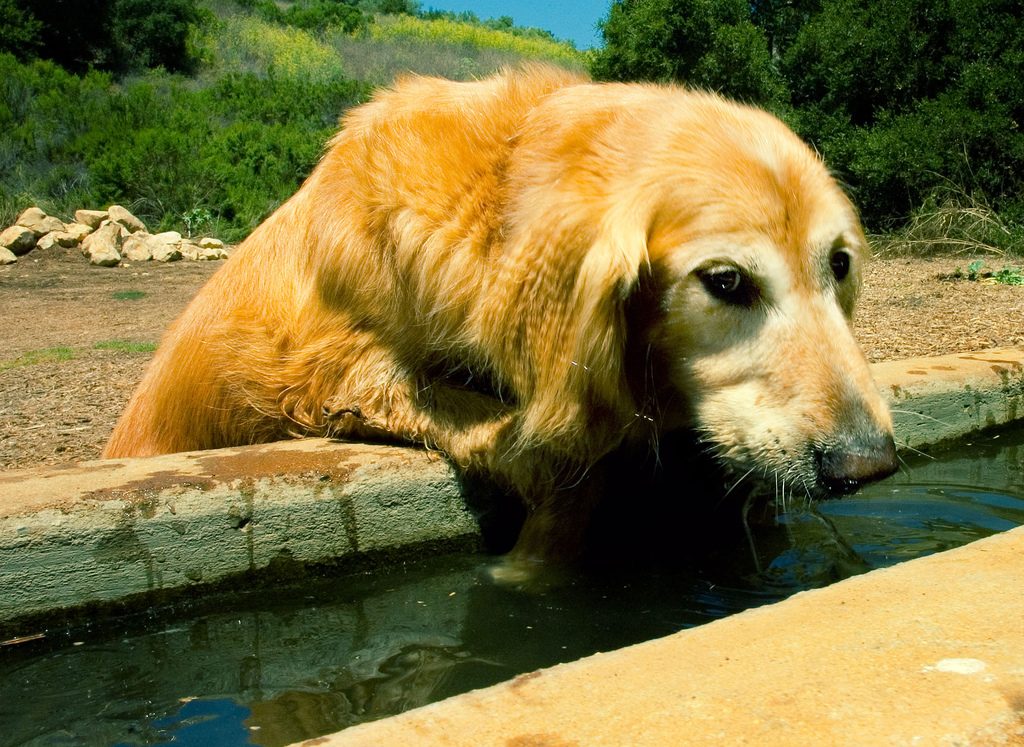How Do I Stop My Dog Farting All The Time?
One of the many benefits of owning a dog, is that you always have someone to blame those unusual smells on. However, some dogs do appear to be particularly gassy. Read on for some hints on how to reduce the smell.
Dogs fart for a number of reasons. Swallowed air if not burped up, has to come out somewhere. They can also produce excessive gas due to diet. There are certain foods that should be avoided and a number of options to try before you need to start wearing a gas mask in your own home.
And don’t worry, it is normal to fart, so you will still get the occasional parp. Of course it goes without saying that none of those farts are coming from the lady of the house. Ladies never fart, that one was definitely from the dog.
WHY DOES MY DOG FART?
If your dog swallows lots of air while eating, that air has to come out somewhere, either through eructation (burping) or out the southern end. In most cases these farts are odourless. Gases produced by intestinal bacteria are more smelly, but only 1% of intestinal bacteria produces smelly sulphur or methane.
Dogs are not built to directly digest plant fibres, but the bacteria in their intestines breaks this down and gas is a by-product. The bacteria are essential to good gastrointestinal health and allow dogs to utilise nutrients they wouldn’t otherwise be able to access.
If your dog produces lots of farts, take him to his Veterinarian for a check up as there could be something more concerning such as pancreatitis, liver disease, food allergy or a food intolerance that is behind all that wind. I would particularly worry if your dog also gets occasional diarrhoea, sometimes refuses to eat or has intermittent vomiting.
Every dog is different and although we can recommend some basic principles here, there is no substitute for tailored Veterinary advice. Be aware that when you go to your Vet they will ask you lots of questions about poo, and don’t worry if we like you to bring in samples for us. We prefer chocolate of course, but we are happy to see what is coming out of your dog rather than just talk about it.
PARASITES
It is important to not overlook the importance of regular intestinal worming. Your dog should get a broad spectrum intestinal dewormer every 3 months. If you use a combined product such as Revolution, Advocate or Panoramis, ensure you are also using a separate tapewormer every 3 months.
The active ingredient Praziquantel treats tapeworm, so if your product doesn’t contain it, it must be administered separately. Parasites can be a cause of intestinal problems and cause secondary flatulence.
SWALLOWED AIR
If you have a snub-nosed dog (known as a brachycephalic breed), such as a boxer, staffy or bulldog you may have noticed excessive panting and snoring. They are usually mouth-breathers, and as a result can swallow excessive amounts of air. In some dogs breathing difficulties are severe enough to also result in collapse when exercising.
The problem is worsened if your dog is overweight, so keeping your dog trim can result in marked improvement. A simple surgery, performed regularly in brachycephalic breeds can significantly improve quality of life and breathing.
EATING TOO QUICKLY
If your dog eats like it is going to be taken away from him, he can also ingest air. Feed dogs separately if there are dogs in competition, and split the food into smaller meals. Place an upturned bowl inside a larger bowl, so your dog needs to eat around the bowl and takes smaller mouthfuls.
Alternatively, you could look at a bowls that has projections inside the bowl to slow your dog down. A similar idea if your dog eats dry food, is to place the food in a treat ball.
DIET
What your dog eats can result in excessive wind and sometimes mild stomach upsets. If your dog frequently gets lots of variety and leftovers, try keeping the diet plain for a few weeks to see if this improves things. Does your dog eat a poor quality diet? A diet high in soy, starches, corn and carbohydrates can favour gas production. Switch to a premium quality dog food with meat as the first ingredient not cereals. As a pleasant side-effect, because these diets are more readily digestible you will also have less waste out the other end.
You can also try switching to a low residue, easily digestible diet (the equivalent to just boiled chicken and white rice) and feed small meals frequently. Some dogs that have developed a mild food intolerance can often go back to a normal diet after 6 months or so, but just need some time off for gut rest. Before you do any diet changes, particularly if you are looking for a long-term solution and are home-cooking, consult with your veterinarian to ensure you are using a balanced diet.
All diet changes should be made gradually over at least 1 week, unless your Veterinarian advises otherwise. Some other ingredients that are known fart-makers are cauliflower, broccoli, peas, beans, cabbage and bread. In particular, any type of bean or legume really will make you fart. Lactose from cheese, milk and yoghurt can also cause excessive flatulence. Also avoid Carrageenan, which is a thickener and stabiliser found in many pet foods.
PROBIOTICS
Just as we can get an imbalance of bacterial flora in our intestines, dogs can too. Probiotics can help correct bacterial balance in the dog, whilst prebiotics that support the growth of the correct bacteria might also be effective. These are contained in some prescription diet foods in the form of beet pulp.
ACTIVATED CHARCOAL AND ENZYMES
Theoretically adding digestive enzymes to your dog’s food can help with the breakdown of carbohydrates, resulting in less gas production in the colon. Consult with your veterinarian about these, as there are some very inexpensive types formulated for dogs that are effective and easy to administer.
Another option is activated charcoal, which can be fed as tablets or made into a slurry. You don’t want to add activated charcoal permanently, as it can interrupt the absorption of other nutrients, but up to 3 days is fine. Your veterinarian can recommend an effective dose.
EXERCISE
If all else fails, the best plan is to make sure you walk your dog frequently in the great outdoors. Aim for a short walk after eating and again a few hours later or in the evening. The exercise will help with intestinal motility and release those gas pockets out into the fresh air, rather than in an enclosed space.
Some dogs really will clear the room with their farts and even more amusing, wake themselves up. So long as the flatulence is not excessive or particularly smelly, we might have to move on from the fart jokes and consider it within the realms of normal. If however the farting is really disturbing you and your dog, try some diet changes, exercise and perhaps probiotics, prebiotics and activated charcoal before you banish your dog from the house.




No comments:
Post a Comment